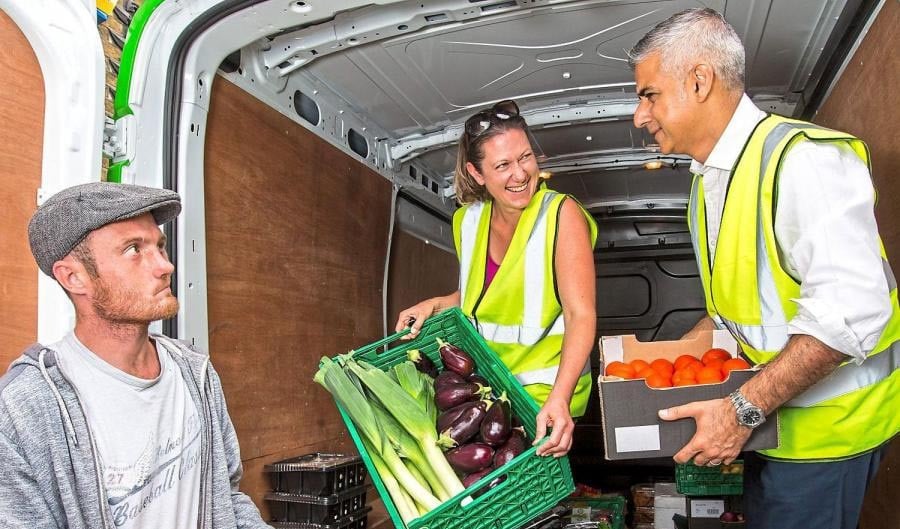

Dear All,
One of the most high-profile charitable drives in London this Christmas is aimed at ending food waste. The Evening Standard (now available free to all London commuters and edited by David Cameron’s close associate, the former Chancellor of the Exchequer George Osborne), highlighted the issue by focusing on one particular such charity The Felix Trust, pioneered by its owner.
The Felix Trust works to bridge the logistics and transport gap. It moves food from those who are willing to donate it to those who can consume it. This is a key part of the process.
I recall how horrified I felt one Sunday just before early closing time in a large supermarket when bakery counter staff tipped all the leftover bread into large plastic bags. When asked what they’d do with it, they replied, they would bin it. What about a food bank I asked, only to be told that the local food bank had no system in place to collect on Sundays (and anyway food banks tend not to deal with perishable food).
The idea that all those loaves and buns baked just that morning would be binned was horribly disturbing, and seemed so objectionable.
In the UK, more than 10 million tonnes of food is wasted every year, while food poverty seems to be on the rise. Anti-food waste initiatives try to get fresh produce in particular -- food, vegetables, yogurt etc -- to those who cannot normally afford to buy it. Hence an initiative might involve taking the produce to stalls in a school where pupils can fill a bag with a selection of fresh produce or taking it to specially discounted stores where specific income groups might have shopping privileges. Linked initiatives will coach people in cooking with fresh ingredients, and support them in their attempts to provide healthy food for their families.
A number of restaurants using donated produce past its supermarket ‘sell by’ date have also sprung up, and chefs like Jamie Oliver have been highlighting the issue for some time.
A lot of supermarkets will reject fruits or vegetables if they look deformed or they do not measure up to weight or other specifics despite the fact that they are perfectly edible. If they are past the sell by date, they will be thrown out. Similarly, tinned and other products will be removed despite the fact that they might be fit for consumption. Food businesses, particularly sandwich chains will do the same, and in most cases they are conforming to legal and health safety standards. But in the last decade particularly this has changed as more and more initiatives have been started to combat food poverty and avoid waste.
But the question is: does this ethically and morally sound approach actually pose a threat to the model of capitalism represented by supermarket chains? Because using what you have, adapting your meals to whatever is available, not buying in bulk (when you succumb to multi-buy offers), being willing to purchase things quite close to their ‘best by’ dates and generally being aware that it is morally unacceptable to be throwing away food -- all go against the model on which modern food businesses function. Many franchises for example specify that leftovers must be binned and cannot be discounted or donated.
It’s heartening to see that awareness of the need to fight food waste is growing in the West. But it’s also upsetting to see how traditional South Asian societies like ours are becoming more and more callous about this, and how money is making people disdainful of the link between food waste and food poverty. There is both a moral and practical dimension to this: ‘waste not, want not’ and ‘greed is not good’.
Hardly the thinking that fuels capitalistic profits…
Best wishes